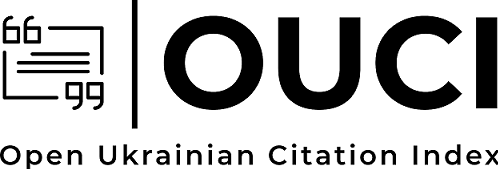Could the Marriage of a Female Educator Be Grounds for Dismissal? Opinions of Educational Institution Administrators at Kyiv Educational District in the Early 20th Century
DOI:
https://doi.org/10.28925/2524-0757.2024.11Keywords:
female educator, class supervisor, married female educator, female education, head of a women’s gymnasium, chair of the pedagogical council, Kyiv educational districtAbstract
Gender inequality shapes the study of women’s professional activities in the modern era. The aim of the article is to elucidate the positions of educational institution administrators within the Kyiv educational district regarding the (in)advisability of female educators continuing to work after marriage, based on a survey of 1903 respondents. The investigation methods include content analysis and the achievements of gender studies. It was established that approximately a quarter of the administrators fully supported the ministry’s proposal to dismiss married female educators, while 32,4% cautioned against unconditional legislative action in this area, and 43,2% outright opposed its practical feasibility. Dominant markers of the image of the female educator included professional-functional, moral-ethical, family-marital, and economic aspects, which, depending on the administrators’ positions, acquired corresponding arguments and conclusions. The functional dichotomy of a married educator between professional duties and family obligations was perceived both by the majority of administrators and categorically rejected by some of them. The study justifies the change in attitude towards the potential reproductive capacity of female employees in official correspondence. It was revealed that the natural conditions of female educators, resulting from childbirth, no longer concerned a significant portion of educational institution administrators. Some have advocated for the necessity of social guarantees for female employees as future mothers. The perception of women’s emancipation is supported by the thesis that the qualification of female educators was determined not by their marital status, but by their individual qualities. This deepens the notion of equality of rights and responsibilities among individuals tasked with teaching, regardless of gender.
Downloads
References
Abrams, L. (2002). The Making of Modern Woman: Europe 1789–1918. Longman [in English].
Berezivska, L. D. (2008). Reformuvannia shkilnoi osvity v Ukraini u 20 stolitti. Kyiv: Bohdanova A. M. [in Ukrainian].
Bludova, A. D. (1888). Vospominaniya grafini Antoniny Dmitriyevny Bludovoy. Moscow: Universitetskaya tipografiya [in Russian].
Drach, O. O. (2011). Vyshcha zhinocha osvita v Rosiiskii imperii druhoi polovyny 19 — pochatku 20 stolittia.. Cherkasy: Vertykal [in Ukrainian].
Drach, O. О. (2012). Women Graduates’ Self-Realization after Higher Educational Courses in the Russian Empire (end of the 19th century — beginning of the 20th century). Bulletin of the Cherkasy University. Series: Historical Sciences, 9 (222), 105–111 [in Ukrainian].
Drach, O.O. (2014). Prosvitytelky narodu: sotsialna misiia vypusknyts vyshchykh zhinochykh kursiv Rosiiskoi imperii. Ukrainian Peasant, 14, 66–69 [in Ukrainian].
Engel, B. A. (2011). Breaking the Ties that Bound: The Politics of Marital Strife in Late Imperial Russia. Cornell University Press [in English].
Gray, P. S., Williamson, J. B., Karp, D. A., & Dalphin, J. R. (2007). The Research Imagination: An Introduction to Qualitative and Quantitative Methods. Cambridge University Press [in English].
Heidi, J. (2008). Content Analysis. In L. M. Given (Ed.) The Sage Encyclopedia of Qualitative Research Methods. SAGE Publications [in English].
Makhinko, A. І. (2022). Social and Legal Status of Teaching in the Dnipro Ukraine (19th — early 20th centuries). History Pages, 55, 45–59 [in Ukrainian]. https://doi.org/10.20535/2307-5244.55.2022.269755
Ollier-Malaterre, A., & Foucreault, A. (2017). Cross-National Work-life research: Cultural and structural impacts for individuals and organizations. Journal of Management, 2017, 43, 111–136 [in Ukrainian]. DOI: https://psycnet.apa.org/doi/10.1177/0149206316655873
Pietrow-Ennker, B. (1999). Rußlands „neue Menschen“. Die Entwicklung der Frauenbewegung von den Anfängen bis zur Oktoberrevolution. Campus, Frankfurt am Main und New York [in German].
Rodevich, M. (Ed.). (1884). Sbornik deystvuyushchikh postanovleniy i prikazov po zhenskim gimnaziyam i progimnaziyam Ministerstva narodnogo obrazovaniya. St Petesburg: Tip. M. A. Khana [in Russian].
Shockley, K., Shen, W., DeNunzio, M., & Arvan, M. (2017). Disentangling the Relationship Between Gender and Work–Family Conflict: An Integration of Theoretical Perspectives Using Meta-Analytic Methods. Journal of Applied Psychology American Psychological Association, 102, 12, 1601–1635 [in English]. DOI: 10.1037/apl0000246Р. 1615
Stites, R. (1990). The New Generation. In Stites R. The Women’s Liberation. Movement in Russia: Feminism, Nihilsm, and Bolshevism, 1860–1930 (рр. 157–190). Princeton University Press [in English]. DOI: https://doi.org/10.2307/j.ctv1m5922h.13
Zijdeman, R. L., van Leeuwen, M.H.D., Rébaudo, D., Pélissier, J.-P. (2014). Working Women in France, nineteenth and twentieth centuries. Where, when, and which women were in work at marriage? The History of the Family, 19, 4, 537–563 [in English]. DOI: 10.1080/1081602X.2014.967266
Zubkov, I. (2010). Rossiiskoie uchitelstvo: povsednevnaia zhizn prepodavatelei zemskikh shkol, gimnazii i realnykh uchilishch. 1870–1916. Moscow: Novyi khronograf [in Russian].
Published
How to Cite
Issue
Section
License
Copyright (c) 2024 Оксана Драч

This work is licensed under a Creative Commons Attribution-NonCommercial-ShareAlike 4.0 International License.
Authors who publish in this journal retain the right of authorship of the work and give to the journal right of first publication of this work under the conditions of Creative Commons: Attribution-NonCommercial-ShareAlike 4.0 International (CC BY-NC-SA 4.0), which allows others freely distribute the work published with reference to the authors of the original work and the first publication of this magazine.














